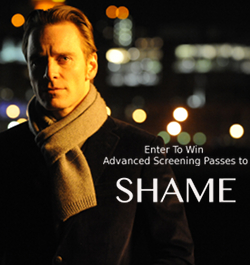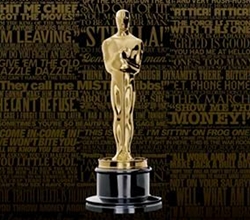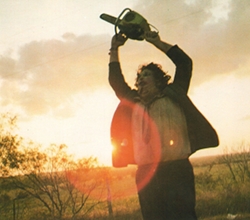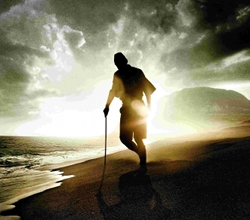Review: Hugo (2011)
How much you enjoy Hugo will largely depend on your own expectations of the film. If you’re expecting a rousing adventure, based on the marketing, you’ll likely end up a bit bored and confused. However, if you trust master filmmaker Martin Scorsese to craft an immersive, thoughtful, and passionate piece of work, you’ll find that the film has so much more to offer.
Impeccably crafted and beautifully directed, the film takes its time in unfolding a moving and meditative tale of finding one’s place in the world, and the importance of film as an art form. Our eponymous hero, Hugo Cabret (Asa Butterfield), finds himself unraveling the mystery of a steel automaton that appears to be connected to both his dead father and the grumpy old toy salesman (Ben Kingsley) in the train station where Hugo lives. With the assistance of the salesman’s child (Chloe Moretz), it comes into light that he is in fact the legendary filmmaker Georges Melies, previously thought dead by historians. While the first half of the film focuses on the mystery and character relationships, the second half becomes a masterful statement about the importance of film preservation.
The passion and romance that Scorsese has for filmmaking is so evident in each frame that I couldn’t help but be charmed by every minute of the film. Every shot is so meticulously framed, an even more stunning achievement given that this is Scorsese’s first foray into the world of 3D. The amount of immersion and depth captured in the cinematography is the first theatrical 3D presentation I can fully recommend since Avatar. 3D has always struck me as a tool that, in the hands of master filmmakers like Martin Scorsese or James Cameron, can be used to craft an immersive and beautiful theatrical experience. Under the hands of studio executives trying to squeeze a few extra bucks from moviegoers, it feels tacked on and detracts from the experience. More important to the visual experience of the film is the rest of the artistry on display. Dante Ferretti’s production design and Robert Richardson’s cinematography drew me into a beautiful, metallic world of clocks and trains, and the use of 3D is further implemented in Melies’ “enchanted castle” movie studio, creating separation effects that truly illuminate his state of the art props and in camera visual effect tricks. Howard Shore’s French parlor-inspired score deserves mentioning too, accentuating the emotion and playfulness of the film at all the right moments.
The ensemble cast all inhabits their roles with varying degrees of difficulty and assuredness. Asa Butterfield seems to be a little uneasy with his job as the lead of the film, but he settles into it quite nicely by the end. Chloe Moretz appears to be having a blast with the film, and continues to show why she’s one of the finest child actors working today. Veteran actors Sacha Baron Cohen, Helen McCroy, and Emily Mortimer all add graceful nuance into what could easily be one-note side characters. I was particularly taken with the balancing act Cohen pulled off between the slapstick comedy of his buffoonish and sometimes despicable station inspector and more complex human strokes. It’s Ben Kingsley however, who walks away with the film in his finest performance in years as Georges Melies. A broken, bitter, hardened man, we see all his regret, resentment, and pain slowly boil to the surface as his identity is eventually revealed. More importantly though, we’re given glimpses into the romantic dreamer he once was, and when contrasted with the broken man he is today, it reveals itself to be a wonderfully nuanced and lived-in portrayal that I hope gets the legendary actor some serious Best Supporting Actor traction.
But what really sold me on the film is how gentle and elegiac the story is. Never once getting preachy about the art of filmmaking or the importance of film preservation, the film balances its assessment of the art form with a tale of broken people who need fixing to find their place in life almost perfectly. The second act gets a little bloated and sidetracked at times, but I wouldn’t want to the film to be much shorter. Scorsese takes his time setting up the story, and it’s all the more intoxicating for it. Can time heal wounds? Or do we spend so much time trying to bury the past that we fill ourselves with bitterness and resentment? These are the kinds of questions the film asks, and lets the audience draw their own conclusions to in many ways. Parallel this with a passionate, romantic tribute of the importance of film as art, and you have one of the richest, layered, and most rewarding film viewing experiences of the year.













 Review: Outrage (2010)
Review: Outrage (2010) Subversive Saturdays: Unglassed Windows Cast a Terrible Reflection
Subversive Saturdays: Unglassed Windows Cast a Terrible Reflection Review: Hugo (2011)
Review: Hugo (2011) Review: The Muppets (2011)
Review: The Muppets (2011) Review: The Muppets (2011)
Review: The Muppets (2011)





